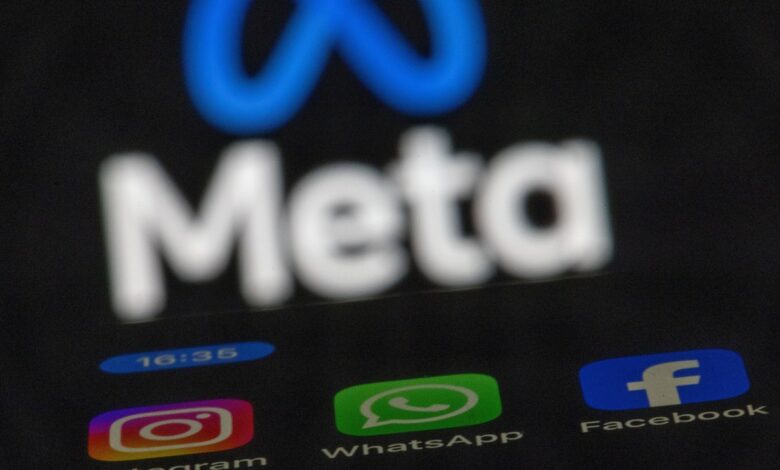UK Court Greenlights $2.7 Billion Antitrust Class Action Lawsuit Against Facebook

As Meta faces off against antitrust regulators in the united states and EuropeA Facebook-style UK competition class action lawsuit worth more than £2.1bn, which takes Meta’s market dominance for granted, is moving forward after the social media giant lost a bid to dismiss the litigation. The lawsuit seeks damages worth at least about $2.7 billion at current exchange rates.
Competition law expert Dr Liza Lovdahl Gormsen is suing the parent company of Facebook, Instagram and WhatsApp over claims it exploited the personal data of UK users in an “unfair trade”, based on the argument that users had no choice but to submit to Meta to collect and process their information to obtain advertising benefits from the company due to its market dominance on social networks.
“The group representative argues that these practices imply an unfair commercial condition and/or impose an unfairly high price on users,” the litigants write in a legal notice make known the collective claim.
The case, which was brought as a representative action by Lovdahl Gormsen on behalf of all UK Facebook users, covers 46 million users of Meta services in the country between February 14, 2016 and October 6, 2023.
The “opt-out” class action has been in the works for almost three years. Lovdahl Gormsen originally filed the lawsuit. in January 2022and since then Meta has tried twice and twice failed to get it dismissed.
Meanwhile, a revised claim, lodged in October 2023, adjusted the compensation sought to between £2.1bn and £3.1bn (excluding interest), based on evidence provided by Professor Fiona Scott Morton. (The lawsuit originally set damages at £2.3 billion, but the number of Meta users in the UK has increased slightly compared to the 44 million the lawsuit listed in January 2022.)
In the latest development, the UK Competition Appeal Tribunal, the court that handles litigation related to antitrust issues, certified the class action, allowing it to proceed to trial. This in turn has triggered a official notice announce the case, including instructions on how to opt out if affected users decide not to participate.
Facebook users in the UK are automatically included in the class action claim, meaning they must actively opt out if they do not want to be included in potential damages or financial settlements. (Please note that there are no fees or other costs for inclusion.)
The case concerns Facebook users and how their data is collected on Meta-owned products outside of Facebook, as well as on third-party platforms. Meta may collect information from individuals through cookies or other tracking technologies, for example, or through information provided by advertisers, data brokers, or other partners it works with to target ads.
“Facebook has entered into an unfair agreement with its users regarding the collection of users’ data about their activities outside of Facebook (“Off-Facebook Data”),” the plaintiff writes in the official notice of the case. “Facebook requires users to provide data outside of Facebook as a condition of accessing the Facebook platform pursuant to a ‘take it or leave it’ offer.”
Dr. Lovdahl Gormsen argues that these practices involve an “unfair trade condition,” which imposes an unfairly high price on users and their information. Due to Facebook’s market dominance, it is claimed that users have no real alternative to using their social networks if they wish to opt out of its data collection.
“I don’t think people can connect with their family and friends in the same way on Twitter (now “Facebook is pretty unique in the way they’re doing it.”
The amount of data collected on users has been at the center of some of the most critical opinions on social media, spanning controversies such as 2018 Cambridge Analytica scandal but also more recent research into the amount of data that apps like TikTok can ingest about users. This is something that demand is also taking advantage of.
“Imagine yourself as a Facebook user,” Dr. Lovdahl Gormsen told TechCrunch in 2022. “You may know that Facebook.com will use your data. But what pixels do is when you use a third-party website, that of course has nothing to do with Facebook. “That means Facebook has created many, many, many more data points about you that you actually knew you signed up for.”
Lovdahl Gormsen is represented by Quinn Emanuel and the case is funded by Innsworth, one of the world’s largest litigation funders, which takes a percentage if the case is successful.
The litigation is notable for several reasons.
First, for the amount requested by the plaintiffs, a sum greater than some of the higher fines for data breaches that have been broadcast to date in Europe. (On paper, the largest fine Meta has faced for data breaches in Europe so far has been 1.3 billion dollarspublished in May 2023.)
Secondly, it is giving real value to personal data, which some might argue is itself a controversial idea.
Third, if the case is successful, it could set a precedent for how individuals could apply competition law in their own legal actions, as well as in other class-action style antitrust lawsuits: a increasing number of which are being archived against the technology giants spanning various business domains, from marketplaces and app stores to cloud computing.
“This groundbreaking case promises to redefine the application of competition law in the context of data exploitation,” said Kate Vernon, partner and head of Quinn Emanuel’s Competition Litigation Practice, in a statement. “It establishes a legal framework to address this fundamental issue and represents a significant change in the way we address the associated critical issues.”
We have contacted Meta for comment and will update when we receive a response.
Personal opinion:
“I see the court’s decision to grant a class action lawsuit against Facebook as a step toward curbing monopolistic practices in the tech sector. If successful, this case could set a legal precedent that will affect other tech companies. Although Facebook may deny the charges, this lawsuit is a real warning about the market power that companies like it have. The company must mount a strong defense if it wants to avoid penalties.”
